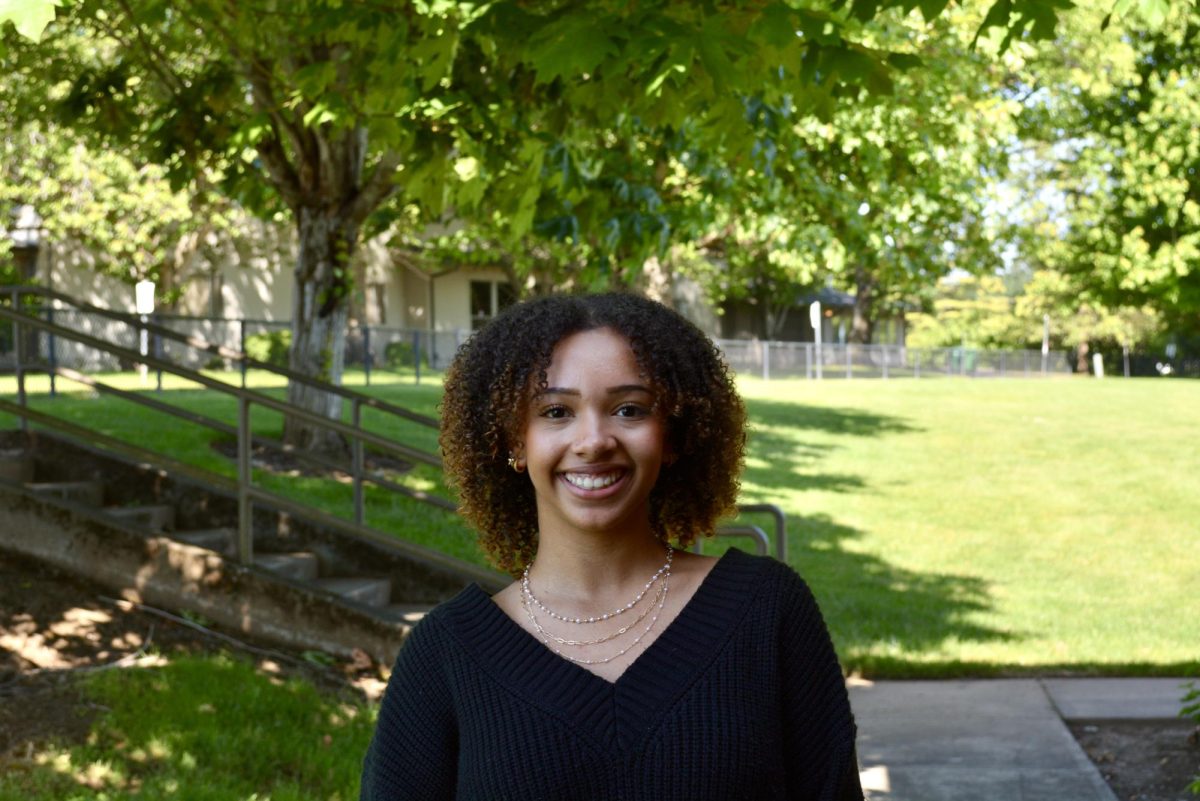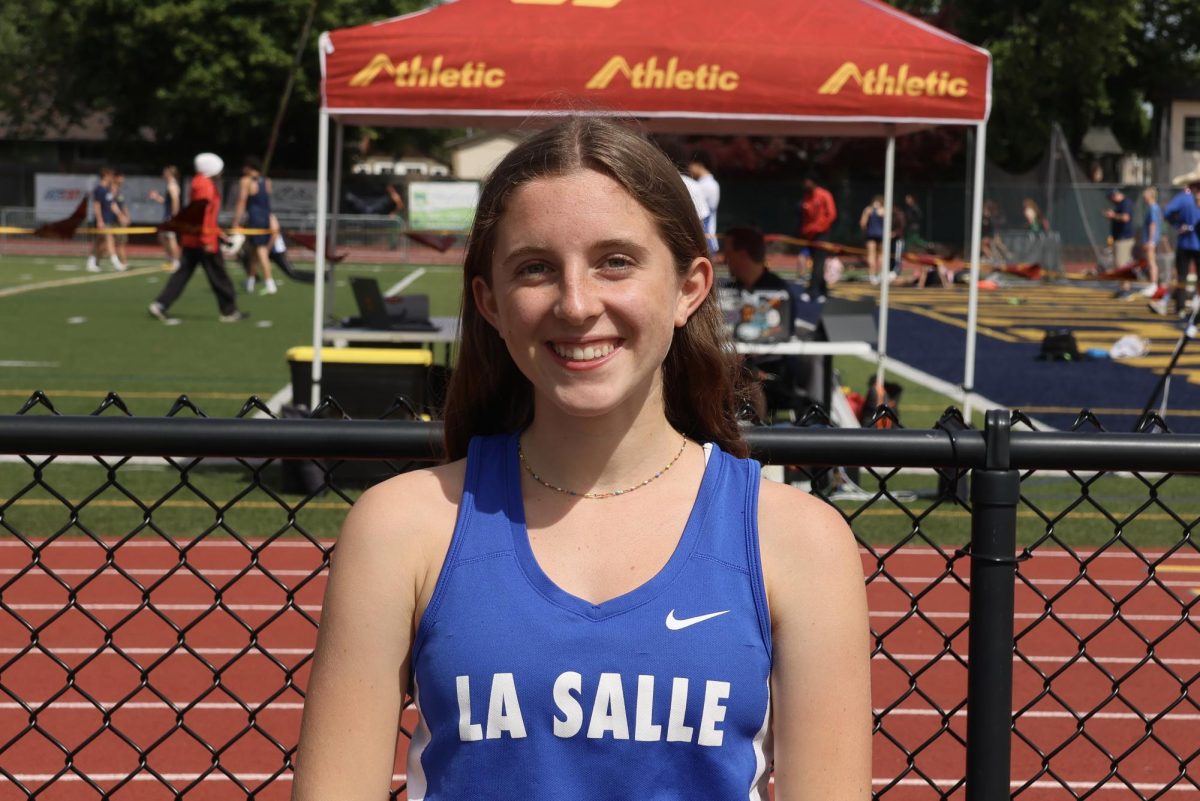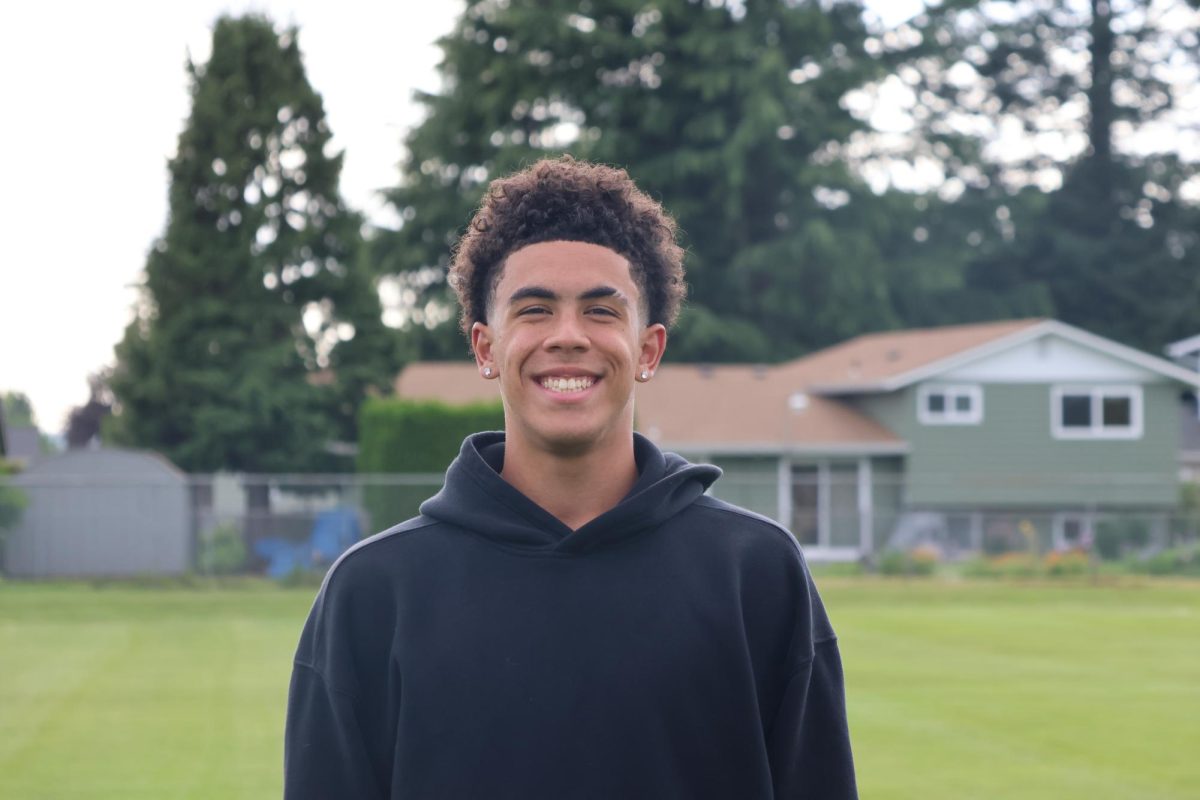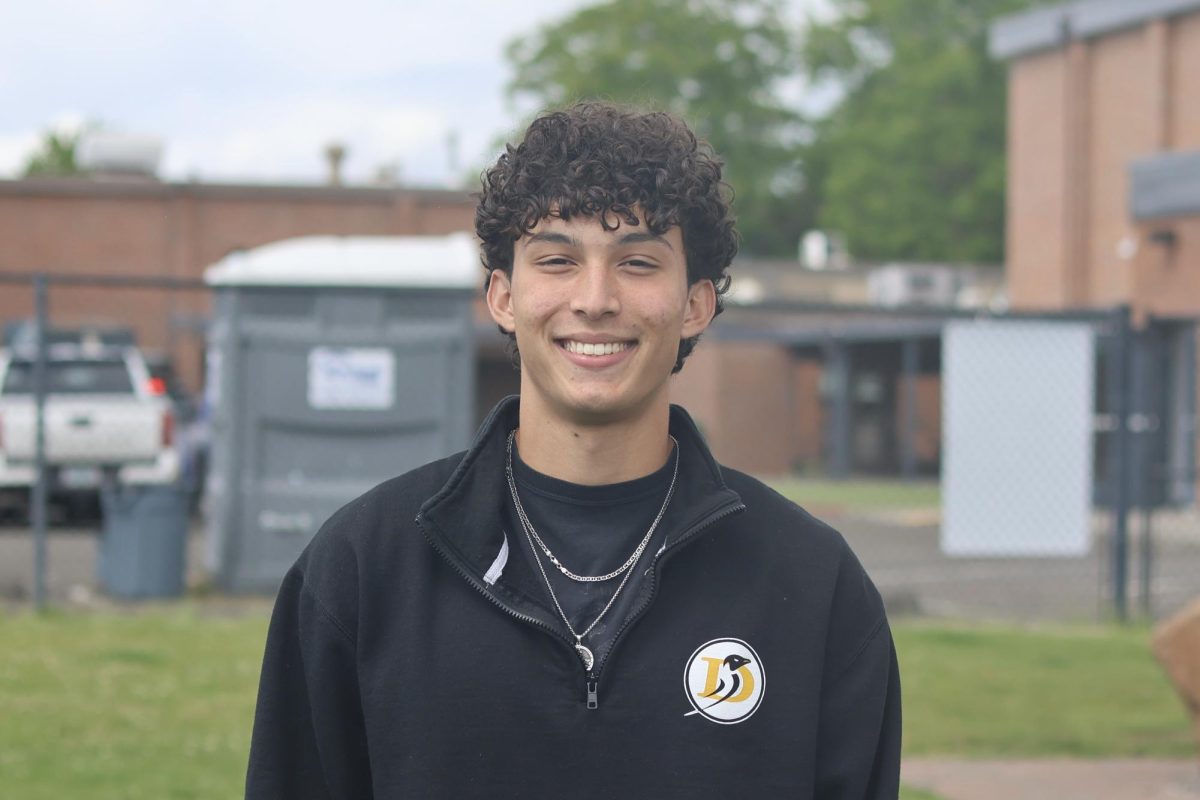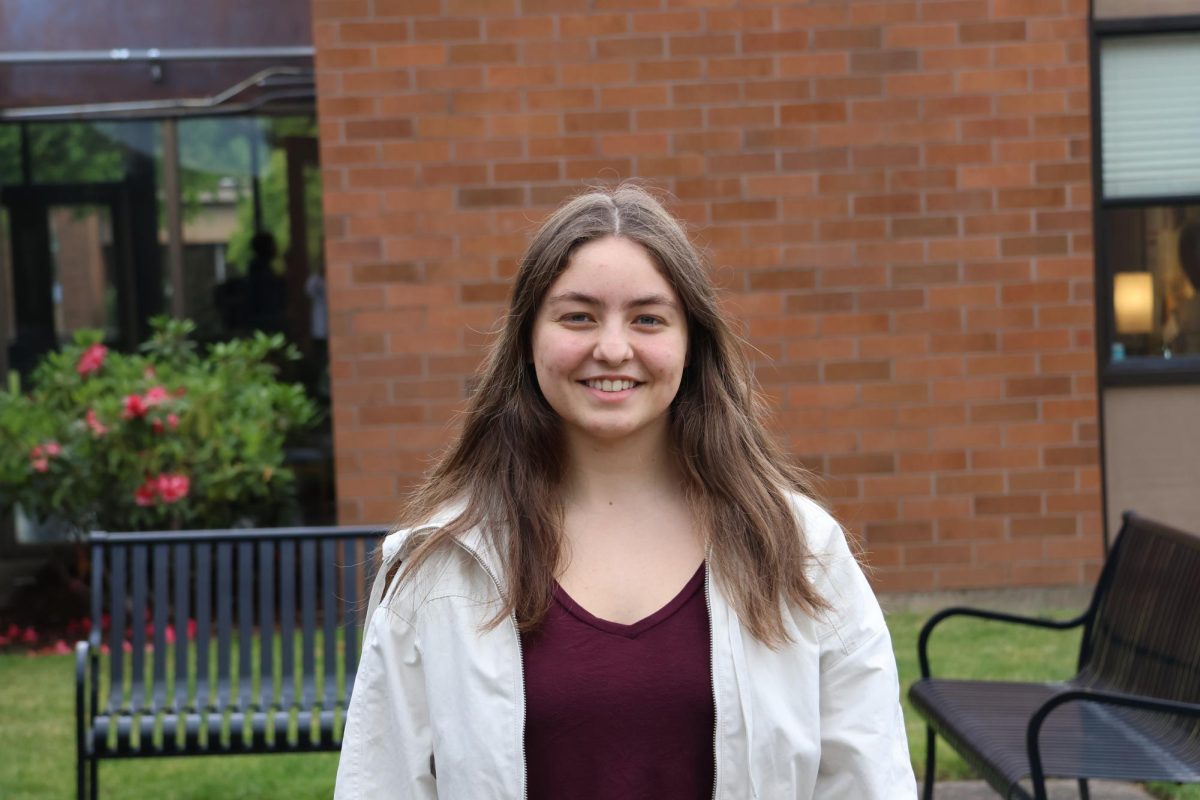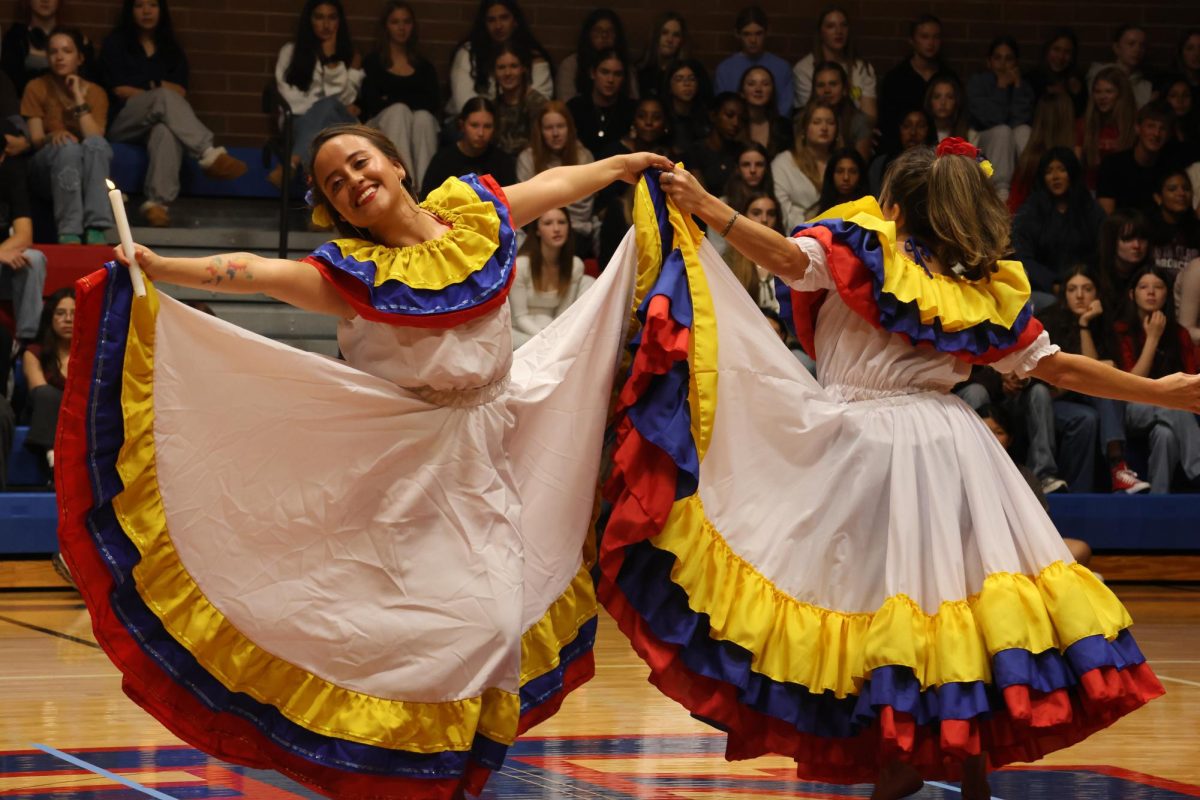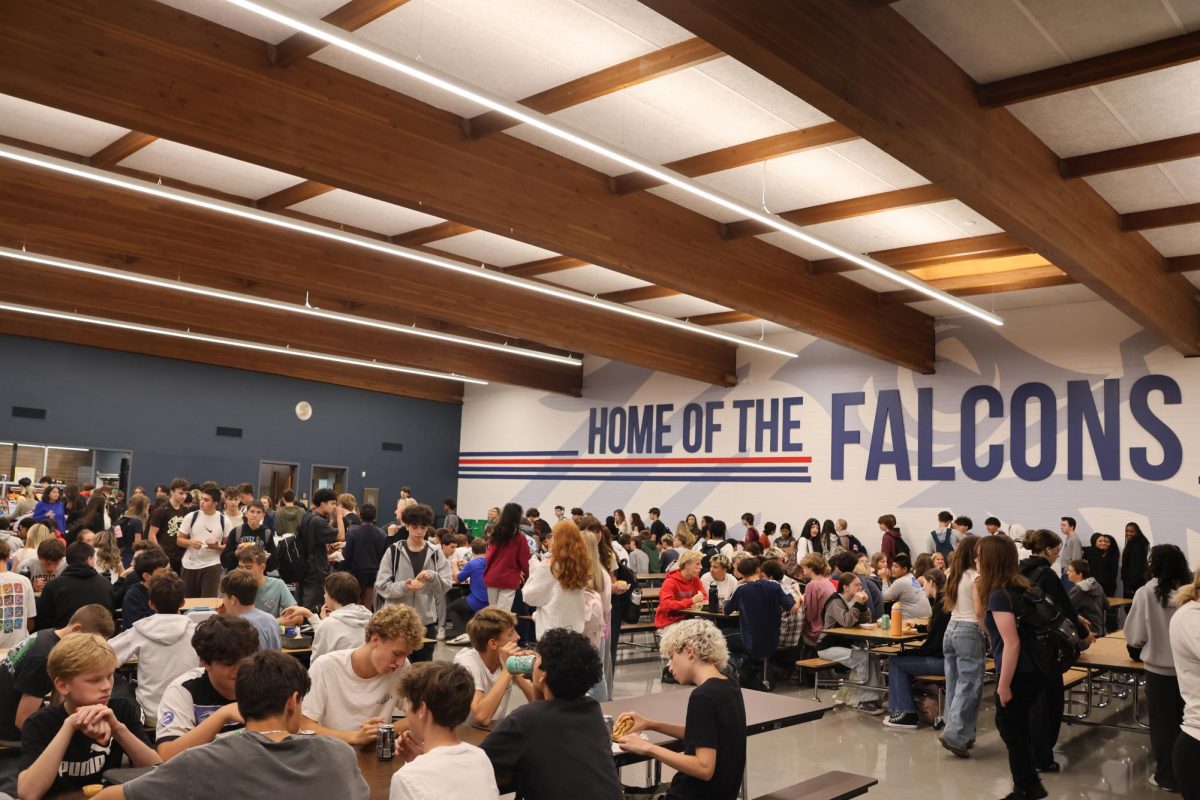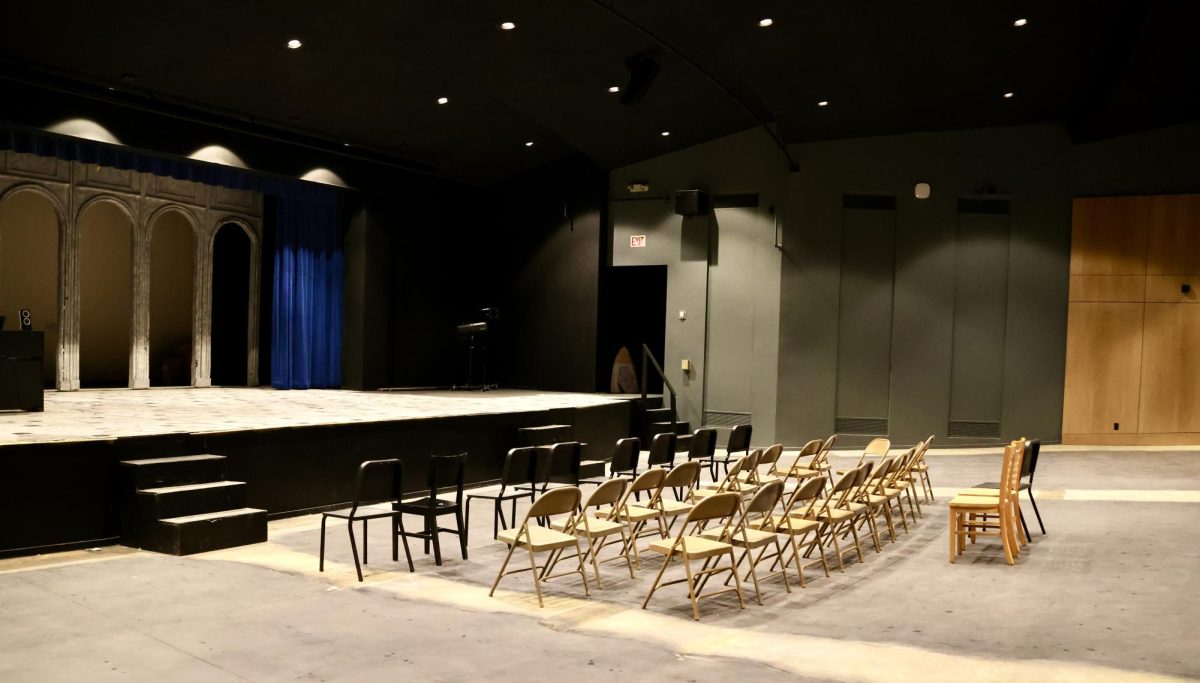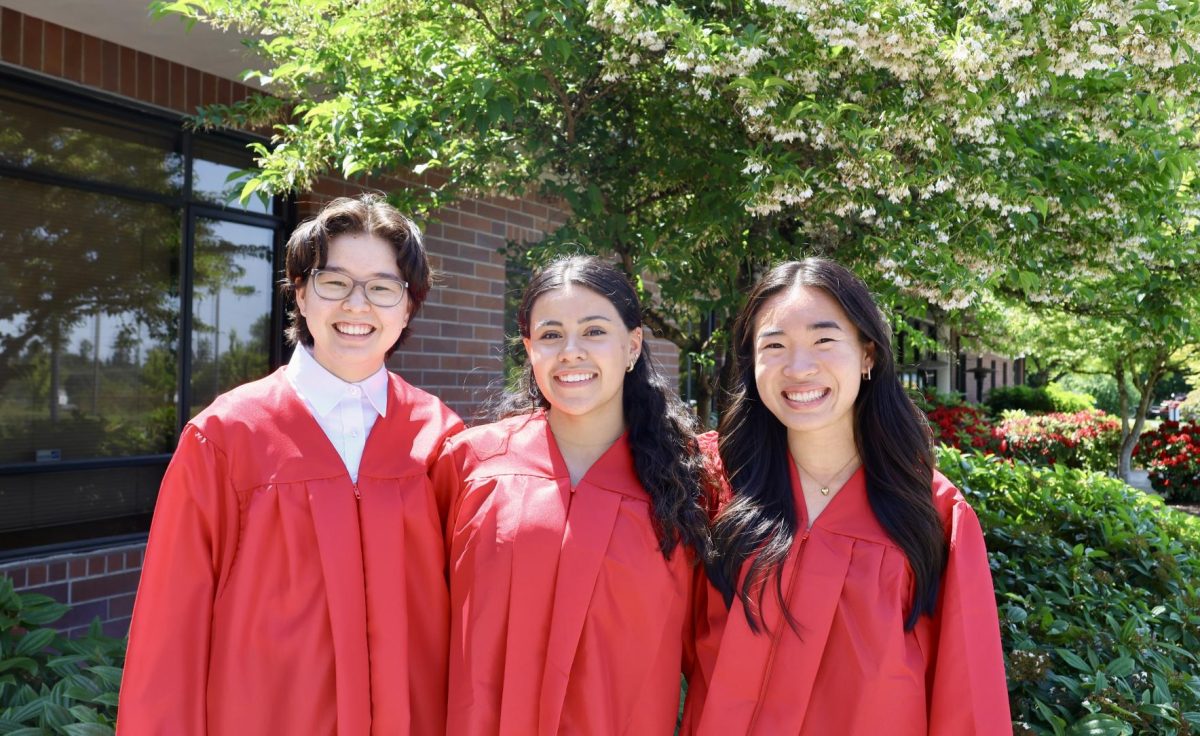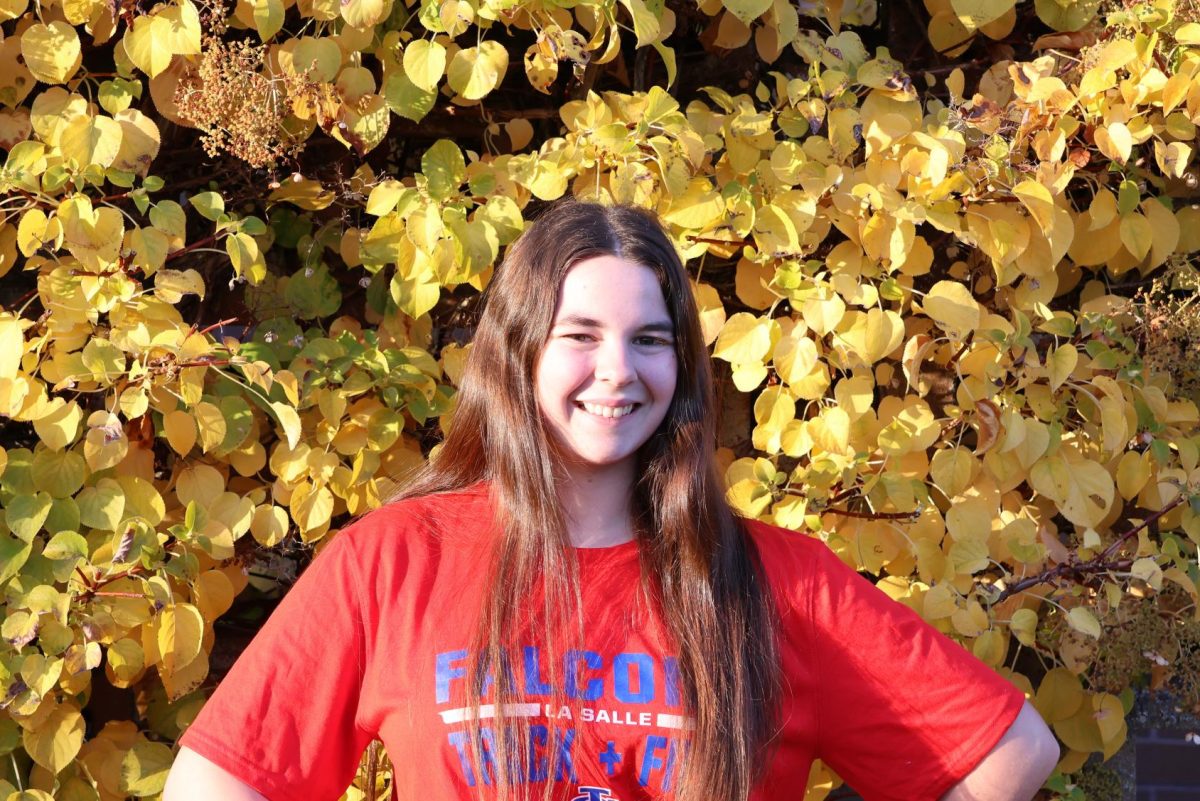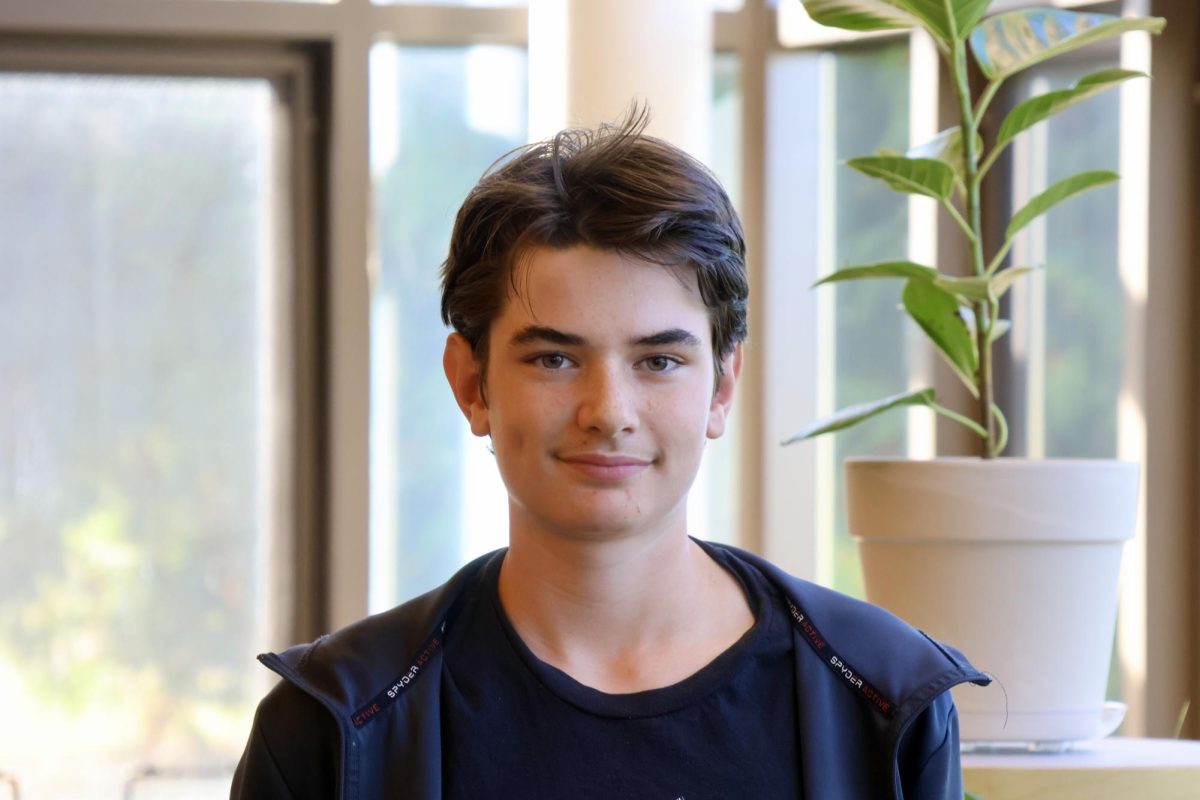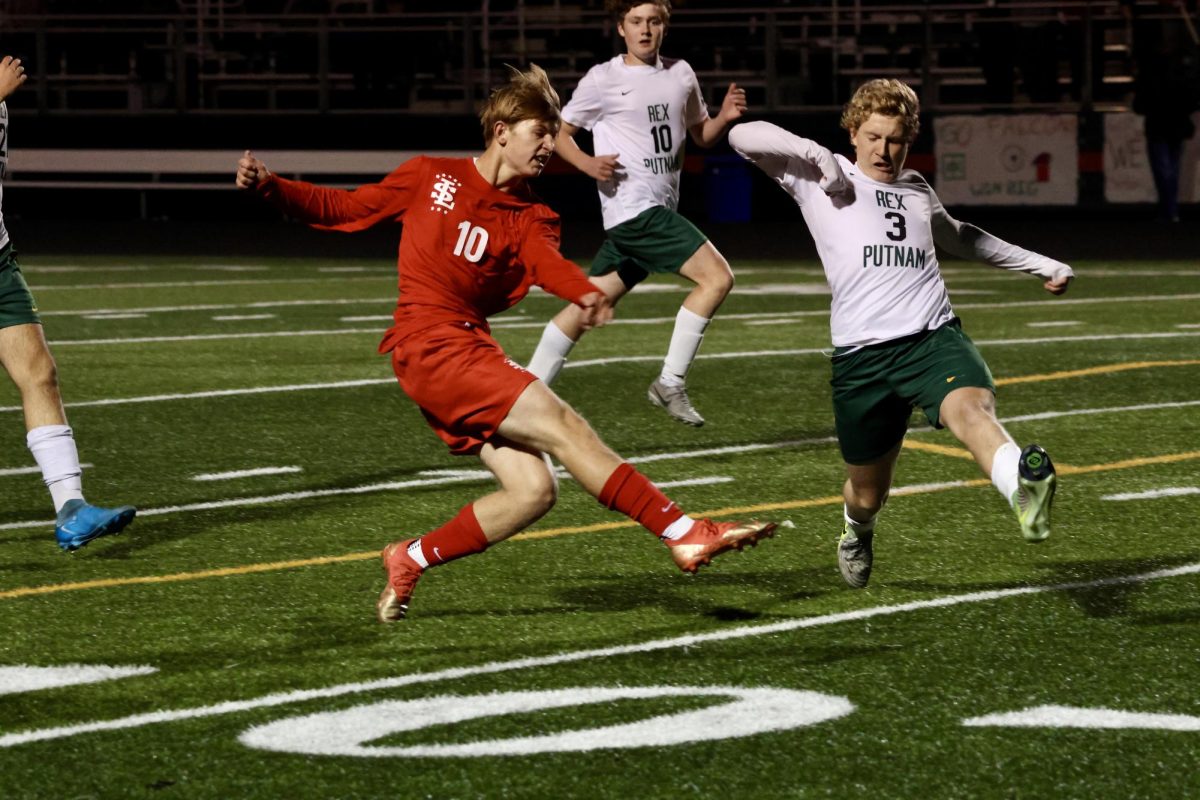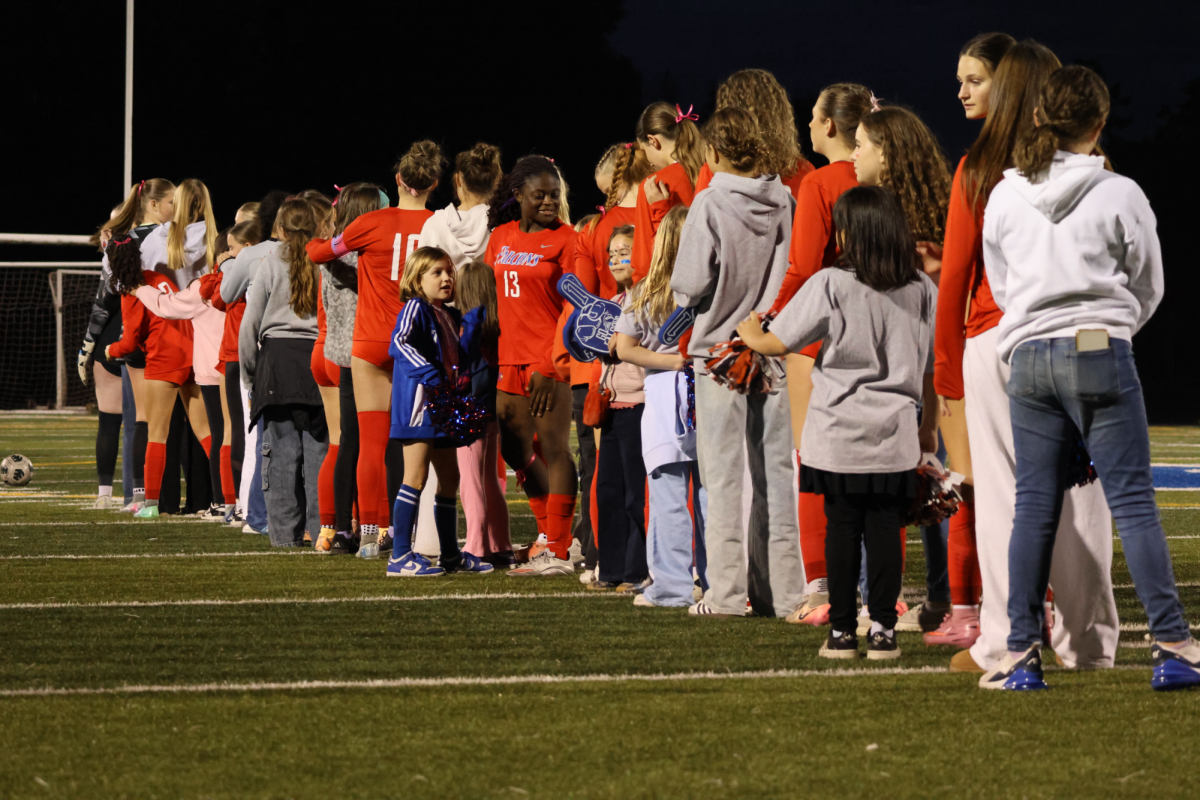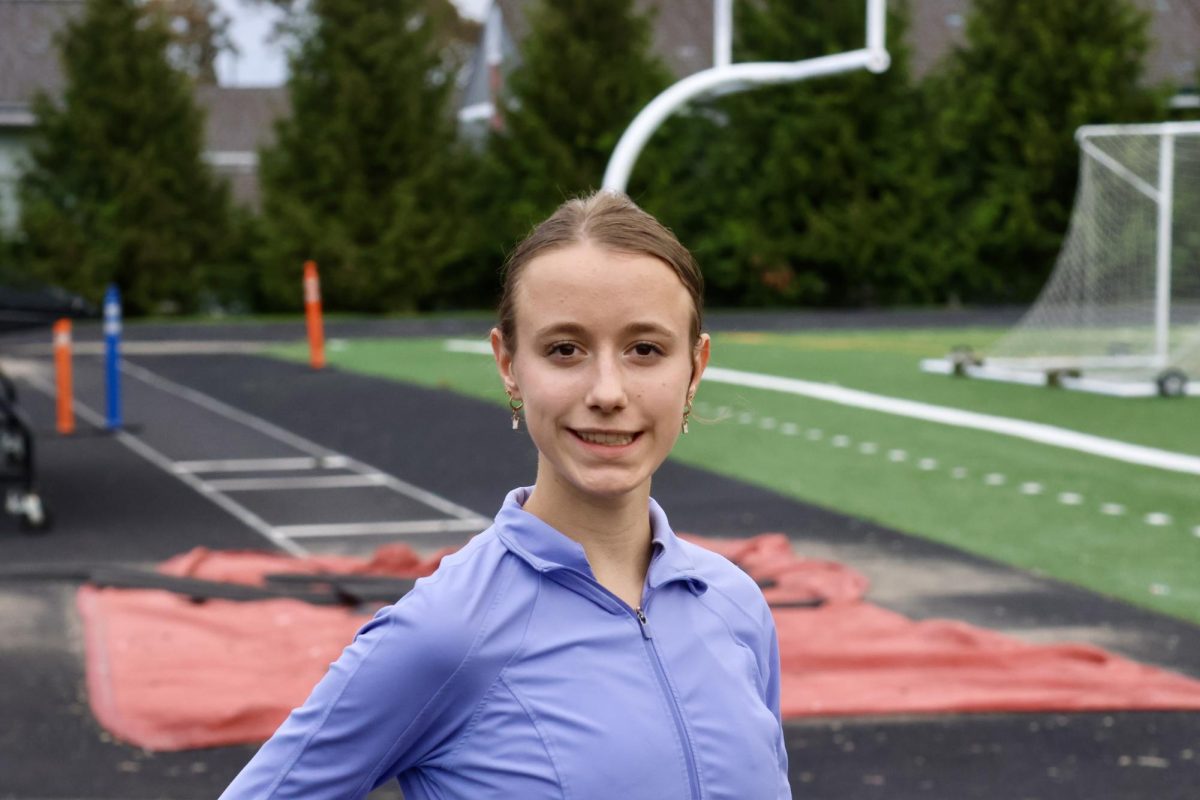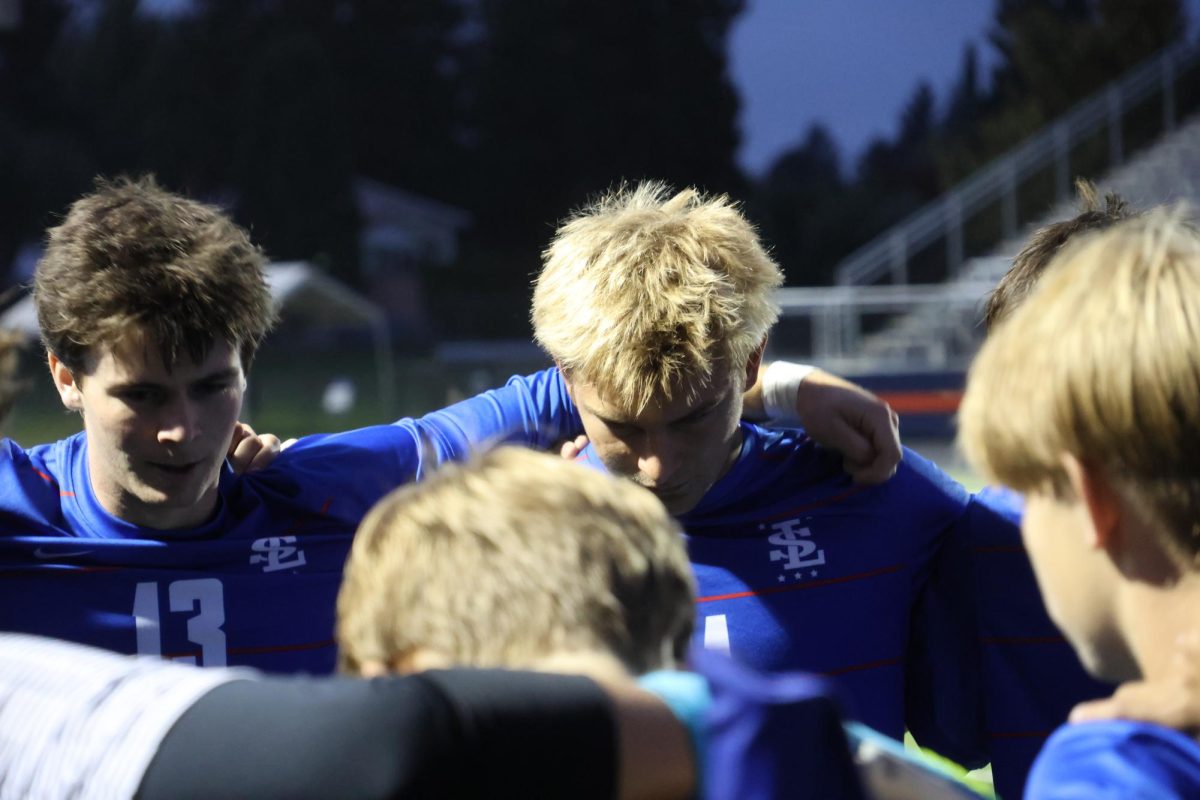From competitive gymnastics, club soccer, and track and field, sports have always played a significant role in the life of senior Gabby Matic. But in December of last year, an injury cut her soccer season short, leaving her to reflect on her mindset and all the little things she’s taken for granted.
For more than a decade — starting at the age of three — Matic competed in gymnastics. However, around her sophomore year, she began to fall out of love with the sport due to the coaches and a lack of genuine interest. “It was an unhealthy and toxic environment that I didn’t want to be around,” Matic said.
She was already involved with soccer at that point, and after quitting gymnastics sophomore year, she began to run track.
In comparison to her experience with gymnastics, Track and Field Coach Mr. Alex Larez is one of her favorite coaches and motivators. Matic has a certain ideology in regards to coaching strategies that appeal to her: “If coaches don’t correct you, then they don’t really want to help you at all,” she said. She similarly believes that while a coach can be stern or strict, the bottom line is that they want to help the athlete improve.
After her positive experience participating in track sophomore year, she stuck with it through senior year and eventually decided on continuing the sport, committing to run at Linfield University. With this, she joins The Falconer’s Next Level Seniors series, designed to honor the select group of students who have committed to playing a sport at the collegiate level.
While she learned to adapt to balancing both sports along with her academic life successfully, nothing prepared her for one of her biggest fears coming true.
During a soccer tournament in Eugene leading up to winter break, Matic was playing right wing. The defender on the opposing team proceeded to come in at an angle, tackling her from the side, and then Matic heard a giant “pop” in her knee. After the game was over, she drove to the emergency room where it was labeled as a sprained ligament that was well enough to walk on. Winter break was soon after, and she did exactly what the doctors said and spent nearly two months walking on her injured leg.
After realizing that something was wrong because she couldn’t fully bend or straighten it, she decided to get an MRI scan.
It wasn’t until she was getting her wisdom teeth taken through Kaiser Permanente, where the system is connected, that she found out the results: Matic had torn her ACL and her meniscus.
“I was sitting there in the chair, sobbing my eyes out,” she said. “It was so hard.”
For her, getting injured was also like a reality check: “I can’t take advantage of things I have on a daily basis,” Matic said. “I need to appreciate the small things in life.” While devastating and not an experience she would wish on anybody, she found that the injury allowed her to explore her interest in exercise science — her planned major — more closely.
Her plan is to run track at Linfield University, and eventually down the line become an athletic trainer on the professional level, possibly working with the NBA or NFL.
“I know I have to start at a high school and work my way up, and it’s going to be a long journey,” she said. “But I’m excited to work with athletes and sports.”
Something Matic also hopes to do in college is study abroad, whether it’s as far as Morocco or Saudi Arabia. But for Matic, the destination doesn’t matter as much as the experience. “Learning about people and the way they live is really fascinating,” she said.
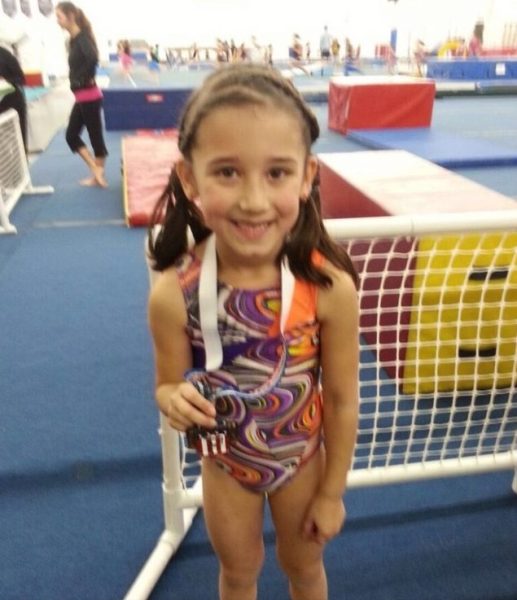
Going to Linfield never occurred to Matic until the Track and Field Head Coach Mikel Rathmann ’05 gave her a letter from the college encouraging her to attend. Afterward, she had a tour for the school itself and a more athletic-based tour of the campus with the track coach, who told her about the team and the community, which is what confirmed her decision to commit.
She also realized that because she didn’t have a season for track in the last year of her high school career that the journey was far from over.
“I’m not done being an athlete,” Matic said. This wasn’t an opportunity she wanted to waste after getting injured.
Throughout the process of recovery, her family, friends, coaches — especially those who understand the pain of tearing an ACL and can empathize with it on a deeper level than those who haven’t — have all been support systems. She noted that it’s the people and athletes who have endured injuries that “have a good impact on me because they know what I’ve been through.”
Matic mentioned that having people you can rely on outside of family is just as important because there are some things that you want to keep outside of that personal space. In addition to talking to people, another method she uses for reflecting on her emotions and throughout her recovery is journaling, something she enjoys for the sake of processing on her own in comparison to talking to others about her feelings.
She’s found that dwelling on the injury won’t help her in the long run. “I can’t change it,” Matic said. “I can’t control it.”
Aside from her ACL injury, a pivotal, yet upsetting moment in her entirety of playing sports was during her first year of running track, when she was put on the 4×1 relay team for state. When it was her turn to grab the baton, she had no idea how to receive or grab it because she didn’t have any practice beforehand, so her hand wouldn’t stop shaking. By the time she looked back, the baton was on the ground and the team was disqualified as a result.
At that moment, she thought, “I never want to relive this ever again.”
Matic especially felt for all the seniors, who were more than understanding towards her, but would not have a chance to win. “I don’t know how many times I said sorry,” she said.
Going into college, Matic is striving to come back stronger than she was before she got injured, both physically and mentally, which also means cultivating a positive and reassuring mindset for herself to understand, as she said, that “this happened for a reason.”
Though the stress only continues to increase moving forward, Matic is confident in succeeding in the classes that she’s passionate about. Regardless of the class, the work has to be done even if it holds less of her interest. It’s just the mindset that changes. No matter what grade she gets, Matic affirmed how “it’s just human” and that one of the things she’s going to work on is “being okay with not doing the best I can.”
Matic’s final note to give students and underclassmen was simple.
“Don’t let anyone tell you that what you want to achieve is too much,” she said. “Keep pushing forward.”



